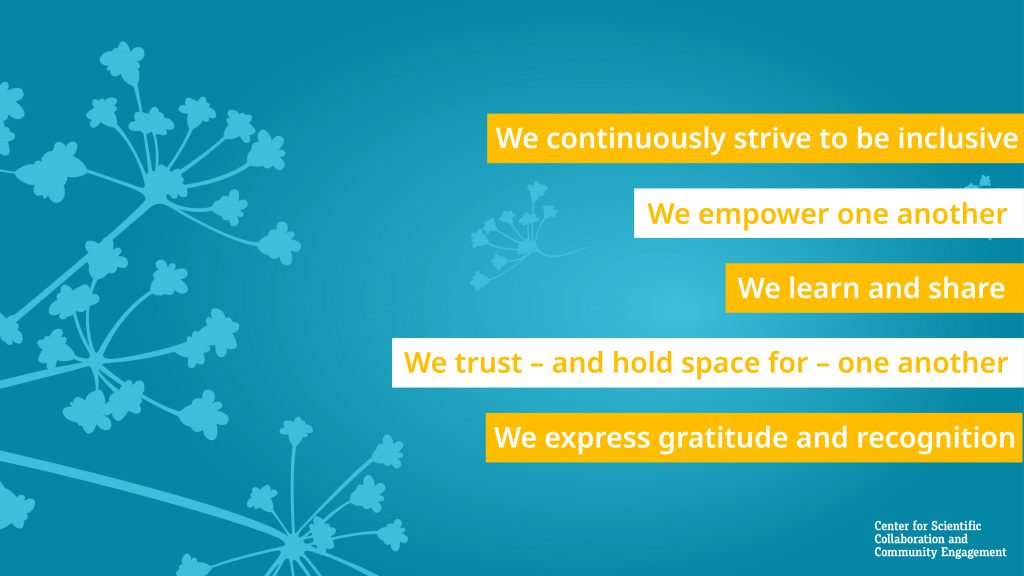For our “First Birthday Series” of blog posts, we are taking some time to reflect on CSCCE’s community of practice, which turned one year old on 21 October 2020. Our first post summarized the community “by the numbers,” then we delved a little deeper into our programming offerings, and last week we discussed our resources and the importance of co-creating together. In this post, jointly authored by Communications Director, Katie Pratt and Center Director, Lou Woodley, we take a look at the scaffolding needed to support working groups and special interest groups – and review what ours have done so far.
The rationale for working groups and special interest groups
Why might a community decide to establish working groups and/or special interest groups? In an earlier post we discussed community-level programming – activities that are general enough that they are designed to be of interest and value to all members and to create opportunities to get to know one another and identify commonalities. However, within any large enough community, there will also be differentiation into sub-groups who want to focus more deeply on a specific topic – perhaps as an area of professional development or something that supplements a project they need to deliver in their own community role. This differentiation into sub-groups also creates opportunities for emerging leaders within a community – those who are highly engaged and wish to take on more responsibility for advancing the overall mission of the community. It’s this combination of scaling, through the activities and empowerment of these emergent leaders, and dedicated group work that greatly enhances the ability of any community to make progress towards its overall mission. For these activities to be successful, community management is nonetheless needed to support emergent leaders and their groups in their activities.
Continue reading “First Birthday Series: CSCCE working groups and special interest groups”
